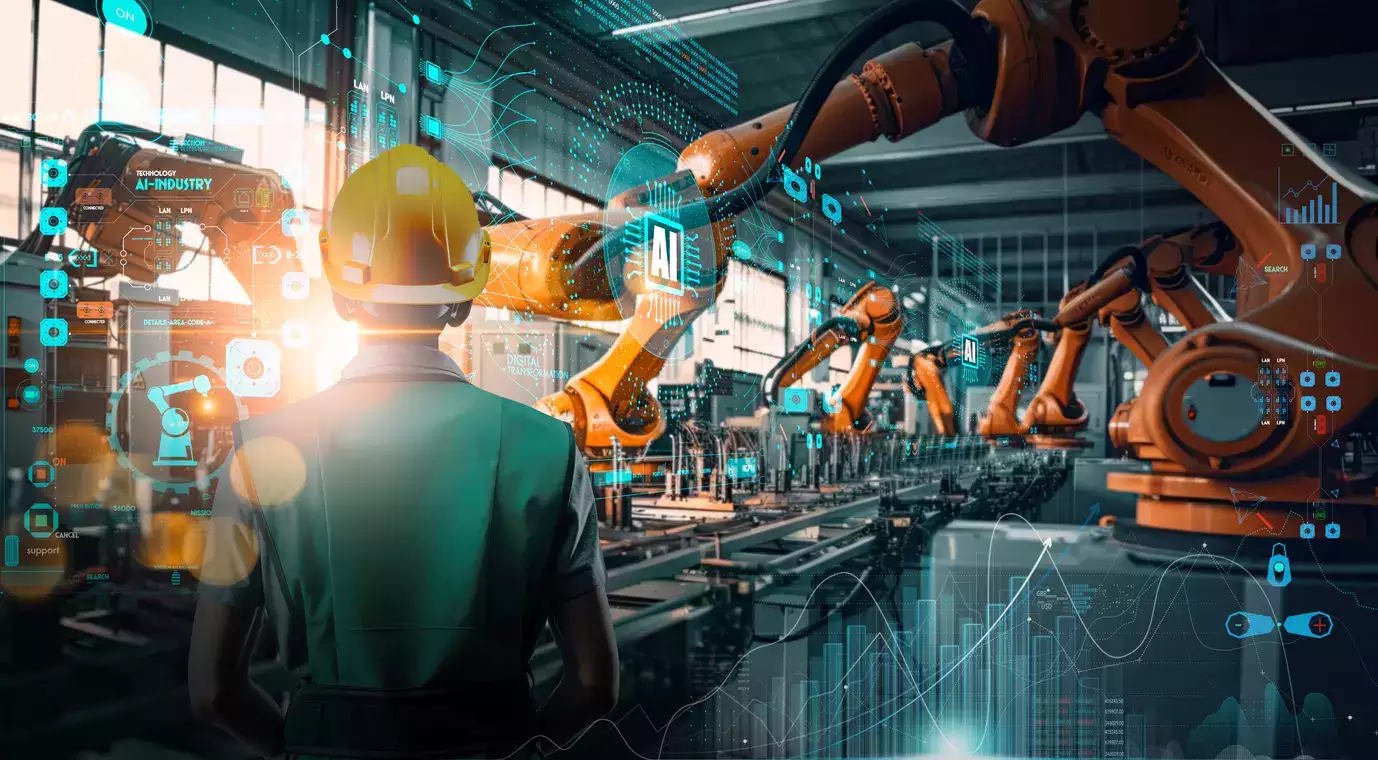
Smart manufacturing integrates advanced technologies to increase productivity and sustainability. The smart factory uses an amalgamation of technologies to streamline various operations, such as real-time monitoring, automation, advanced analytics, robotics, etc. Combining all these technologies makes operations more efficient, lowers costs, and improves the quality of the products.
Smart manufacturing landscape
A line-up of key technologies monitors, controls, and validates all of the production-related information from the raw materials to the finished products, and provides this information in real-time to system operators to help in monitoring production and driving compliance, quality, and efficiency.
Production Monitoring helps to securely connect to machines on the plant floor, providing operational insights in real-time such as Overall Equipment Effectiveness (OEE) that are indispensable, allowing manufacturers to maintain optimal productivity levels.
"Smart manufacturing integrates cutting-edge robots and automation technology, enabling unparalleled workforce expansion. Optimizing procedures and increasing human talent, creates a dynamic environment where employees can upskill, innovate, and make important contributions to their organisation's success. This mutually beneficial link between technology and talent moves companies forward, boosting economic success and cultivating a culture of continual learning and improvement," said Prateek Jain, Co-Founder & COO at Addverb.
"Smart manufacturing is a force for good, enabling companies to prosper in a world that is becoming more ecologically sensitive and competitive. It is more than just a revolution in technology," he added.
Examples of smart manufacturing
ERP (Enterprise Resource Planning) solutions streamline operations and improve resource allocation by automating front and back-office procedures related to business management tasks. Supply Chain Planning (SCP) combines data from several departments to synchronize demand and supply forecasting, enhancing production control and inventory accuracy. Quality Management Systems (QMS) standardize and automate documentation, procedures, and measurements to guarantee constant product quality,
Production logistics provide flexible, zero-touch material movement through manufacturing processes by Autonomous Mobile Robots (AMRs). By utilizing the potential of Industrial AI, advanced data analytics may eliminate industrial bottlenecks, optimize productivity and quality, and offer fresh perspectives.
Automation and semi-autonomy are accelerated by robotics, which makes production systems more intelligent, versatile, and intuitive. As they gather, process, and monitor operational data, smart devices—which are self-aware and system-aware improve system performance.
Through seamless data transmission, industrial control systems enhance production quality and procedures at every level. Design environments, visualization systems, and information software are all informed by the constant flow of useful processes and diagnostic data that power control systems. Design & Visualization tools transform raw ideas into intuitive HMIs and immersive VR simulations for smarter, faster production.
Asset Performance Management (APM) uses dashboards to integrate process, operational, and machine-level data in order to monitor the health of plants and machinery. Computerised maintenance management systems (CMMS) allow organizations to keep an eye on and manage repairs, maintenance, and asset management for their vehicles, buildings, etc. Distributed Control Systems (DCS) use decentralized components to govern dispersed systems, which can be used to handle automated industrial processes or large-scale infrastructure systems.
Puneet Anand, AVP & Vertical Head – Corporate Affairs, Hyundai Motor India said, "Sustainable practices have been deeply integrated into HMIL’s operations. We have one of India’s most environmentally conscious manufacturing facilities in Tamil Nadu, India. From manufacturing to factory operations, we have incorporated eco-friendly practices every step of the way."
"We have managed to conserve energy equivalent to ~19,200 Tonnes of Oil Equivalent(TOE) till now. Additionally, HMIL has been strategically purchasing green power for its Sriperumbudur factory from the Indian Energy Exchange (IEX) to increase its RE portfolio by 64%. Six reservoirs within our factory premises, capable of storing nearly 350,000 metric tonnes of water, facilitate rain-water harvesting fulfill 50% of our water requirement and act as a buffer for 120 days of operations,” Anand added.
Challenges
Manufacturers face a challenging operating environment characterised by inflationary pressures, high energy prices, and persistent skill shortages. Growth is still primarily hampered by inflation, which is worsened by growing energy prices and mounting cybersecurity threats. Other major challenges are labor issues and the difficulty of implementing and integrating new technologies.
Manufacturers are investing more in technology to address these issues. The research highlights the importance of technology in reducing both internal and external risks, noting a 30% rise in spending over the previous year. Specifically, artificial intelligence (AI) has emerged as a crucial element of technological initiatives, yielding measurable outcomes and increasing return on investment.
Rama Krishna, Co-founder and CEO of EndureAir said, "Modern manufacturing methods have been shown to significantly reduce machine downtime while increasing productivity. In India, smart manufacturing is propelling the various sectors towards higher efficiency, sustainability, and competitiveness."
Disclaimer: The copyright of this article belongs to the original author. Reposting this article is solely for the purpose of information dissemination and does not constitute any investment advice. If there is any infringement, please contact us immediately. We will make corrections or deletions as necessary. Thank you.





